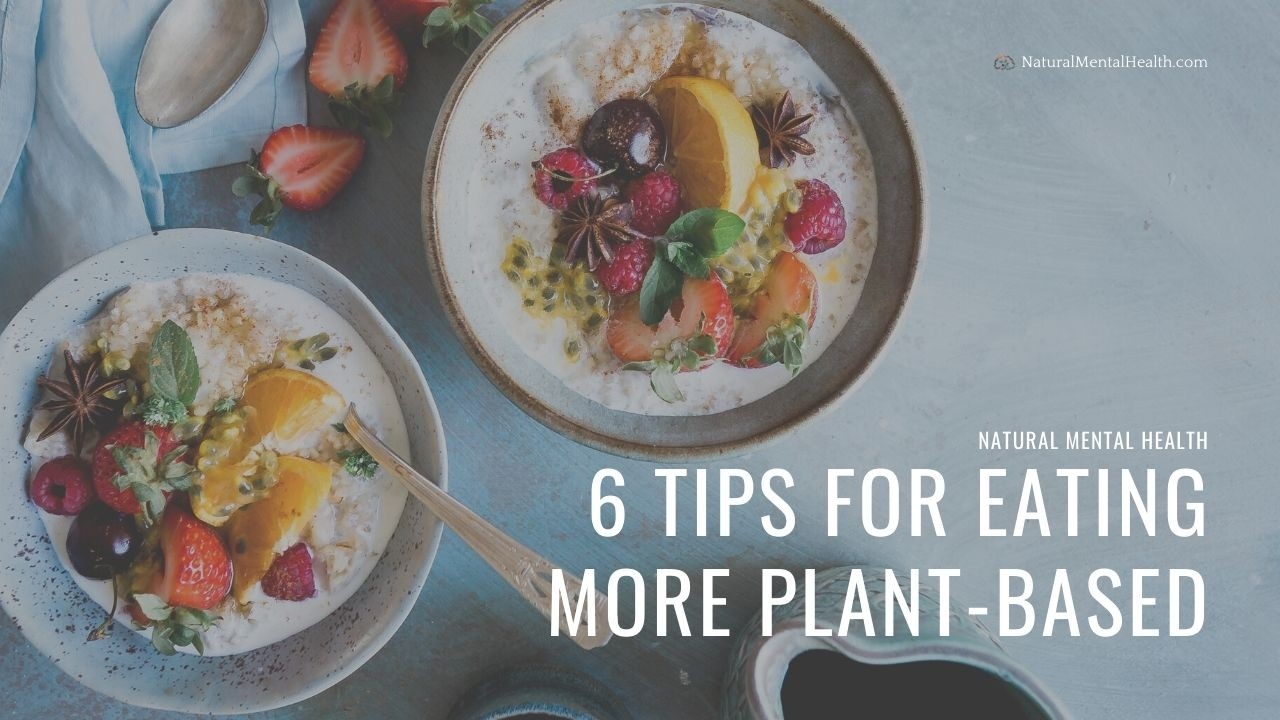
Plant-Based Diet for Beginners: Six Easy Tips to Start a More Plant-Based Diet
Nov 27, 2018By Elly Hollenhorst
The following tips on how to eat more plant-based will not only satisfy your comfort food cravings in the cold fall and winter months, but nourish your body by helping you succeed in eating more whole foods.
What Is a “Plant-Based” Diet?
The term plant-based has been buzzing around the internet of late and hopefully, we will continue hearing more about it as time passes. A whole food plant-based diet means that the food you consume is centered around an abundant variety of whole grains, vegetables, legumes, beans, fruit, nuts, and seeds while aiming to eat food as close to its whole form as possible (e.g. brown rice vs. white rice), choose organic as much as you can, and avoid processed food.
Whole food plant-based diets have been studied and appear to be among the healthiest ways of eating. Let me put it this way, very few people argue against adding more vegetables and fruit to your diet to make you healthier. But wait, a whole food plant-based diet is so much more than just fruit and vegetables (though they are an integral part). It is bolognese-pasta, hearty soups, comforting chili, fluffy pancakes, and deliciously decadent yet sneakily healthful baked goods. And in case you were already thinking of summer; yes, you can grill while eating a whole food plant-based diet.
Why Eat a More Plant-Based Diet?
Lasting energy, increased focus, and comfortable digestion are just a few positive “side effects” I noticed from my personal and anecdotal experience on a plant-based diet. Since I am not a doctor nor do I claim to be, I can only tell you from my own point of view and encourage you to do your own research. I have consistent energy that lasts throughout the day. I never feel tired after eating, and my digestion has improved three-fold. As I mentioned above, I encourage you to do your own investigation to find out more.
Six Easy Tips to Start a More Plant-Based Diet This Fall
- WARM-UP WITH BREAKFAST. Swapping out one meal a day is a great place to start your plant-based journey. Try oatmeal with fresh fruit, nuts and seeds, spices like cinnamon or cardamom, and nut butter. Oatmeal is warm, satiating, and perfect for every season and it tastes extra delicious in the cold months. Another great option is whole wheat toast with unsweetened nut butter (check the label for wholesome ingredients) and top with fresh fruit such as pomegranate seeds, sliced banana, or fresh berries.
- LOAD-UP ON BEANS, LEGUMES, AND WHOLE GRAINS. Bean chili, lentil soups and stews, and chickpea curries served with brown rice or quinoa are great for cold months. If you are craving hearty pasta, there are extremely delicious plant-based bolognese sauce recipes available on the internet.
- SWITCH TO NON-DAIRY MILK. Do you take your tea or coffee with milk? Do you love baking? Creamy mashed potatoes? Plant milk can easily replace dairy milk in any recipe. There are tons of non-dairy milk options available in nearly every grocery store (generally found near the dairy section). Examples are almond milk, oat milk, cashew milk, soy milk, rice milk, and so on. You can also make your own milk to save on waste and cost! Cashew milk and oat milk are the easiest to make at home.
- DON’T FORGET TO EAT YOUR GREENS. In the colder months, you may find you crave more cooked food. That doesn’t mean you have to eat fewer greens. Get creative! It's possible to add greens in most dishes, just chop them up and add them in the last few minutes of your cooking time. Add them in soups, stews, stir fries, bean tacos, or bean chili. Making chili or soup? Add fresh kale or spinach. Making a veggie stir fry? Add bok choy nor chard. Steamed kale tossed with spices is a great side to any dish.
- LEARN ABOUT SPICES. Learning how to spice your food is vital for plant-based cooking. Not only do spices make your food exciting, but they provide your body with a plethora of antioxidants and nutrients. For example spices like nutmeg, cinnamon, and cardamom are great with your morning oatmeal and sweeter toasts.
- REMOVE OVERLY PROCESSED FOOD from your home. Packaged cookies, boxed cereals, chips, and crackers may be convenient to eat, but they don’t provide many nutrients to your body despite what their advertisements may claim. These foods can cause your energy levels to skyrocket and plummet drastically throughout the day. Instead, stock up on fresh produce, whole grains, beans, legumes, nuts, and seeds. Bonus tip: Fresh fruit is the ultimate fast food -- avocado included!
RELATED ARTICLE
Diet, Supplements, and Herbs to Calm Your System
Optimizing your brain to support mental health isn't as complex as some experts want you to believe. When you understand the basic functions of your brain, then you can more confidently, effectively, and lovingly care for it. Learn more.








